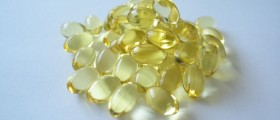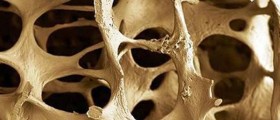
The most common form in which vitamin D exists is calciferol. This vitamin can be found in some foods, but it is also produced by the human body with assistance from the sun’s ultraviolet emissions. Vitamin D’s role is to preserve the appropriate level of phosphorus and calcium within the blood. It also helps, with some other vitamins, minerals and hormones in maintaining healthy bone structure. Lack of vitamin D can result in brittle bones, especially with older women. Latest researches shown that vitamin D may have a potential to protect the body from some types of cancer, for instance cancer of the colon. Still, researches need to define whether vitamin D protects the body from cancer, or the cancer is caused by vitamin D deficiency. There are some diseases that are caused by vitamin D deficiency. One of them is rickets, which is softening and weakening of the bones that typically occurs in children. Another condition is osteomalacia that causes a weakening of the bones and can lead to another disease called osteoporosis. Osteoporosis is a disease that is common for older women.
Vitamin D Sources
One of the main sources of vitamin D is daylight. Ultraviolet rays from the sun can trigger a process within the skin. This process is known as vitamin D synthesis. For your body to absorb sufficient amounts of vitamin D, ten to fifteen minutes of daylight exposure would be adequate. This is why time of the year,time of the day, sunscreen and pollution are factors that affect the absorption of Vitamin D from the daylight. Besides skin, kidneys and liver are also important in the absorption of Vitamin D. Food is also an important source of vitamin D. Vitamin D rich groceries are: fish (mostly fatty fish), eggs (just yolks), beef liver, oil derived from the cod liver. A little less Vitamin D is contained in: cereals, bread, ice cream, milk, margarine, etc.
Daily requirements for Vitamin D
Recommended amount of vitamin D depends on the person’s age. Eating healthy food rich in vitamin D, and adequate exposure to the sunlight is enough to preserve a healthy level of vitamin D in the human body. Even though there are some groups of people who may need a dietary supplement to get the sufficient amount of this vitamin. Usually those groups of people are infants and older adults. Considering all of the health benefits that come from Vitamin D, it is vital for us to make sure we are frequently getting sufficient amounts.

















Your thoughts on this
Loading...